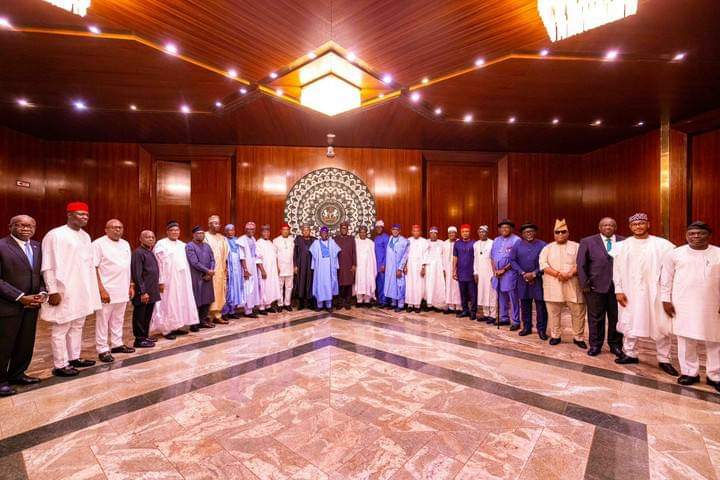States across Nigeria have expressed varying positions on the Federal Government’s recent agreement with the Nigeria Labour Congress (NLC) and Trade Union Congress (TUC) to implement a ₦35,000 wage award for federal workers. The agreement was intended to alleviate the impact of petrol subsidy removal. Here is a summary of the different state responses:
1. Kwara: The government of Kwara State has already been providing an additional ₦10,000 to its civil servants since July, even before the federal government’s decision. They plan to continue this support until a new minimum wage is implemented next year.
2. Kebbi: Kebbi State is considering its options and will sit with cabinet members soon to determine the wage award for its workers. However, no commitment has been made regarding matching the ₦35,000 awarded by the Federal Government.
3. Enugu: Enugu State has agreed to replicate the Federal Government’s wage award of ₦35,000 for its workers. They intend to structure subsidy removal palliatives in a manner similar to the Federal Government’s plan.
4. Niger: The government of Niger State is cautious and will deliberate on the wage award after reviewing the financial implications at a council meeting presided over by Governor Muhammed Umaru Bago.
5. Adamawa: Adamawa State, which has already been paying ₦10,000 as a transport allowance to its workers, will examine the details of the ₦35,000 wage award once it is communicated by the Federal Government.
6. Ondo: Ondo State plans to engage in discussions with labor leaders to determine how to implement the federal government’s measures to cushion the effect of fuel subsidy removal.
7. Oyo: Oyo State Government will engage in collective bargaining with labor leaders to arrive at a mutually satisfying package for its employees.
8. Ekiti: Ekiti State expresses its intent to align with the Federal Government’s measures and will work with labor leaders to determine the best approach for its workers.
9. Osun and 10. Ogun: These two states promise to respond after consulting with stakeholders.
11. Plateau: Plateau State asserts that the Federal Government cannot dictate its wage award policies and is working on its own plans to alleviate the plight of workers.
12. Abia: Abia State is awaiting further details of the agreement between the Federal Government and labor unions before taking action.
13. Cross River: Cross River State is already paying ₦10,000 as a wage award to its workers and will continue doing so.
14. Delta: Delta State has implemented measures to provide relief to its civil servants in light of fuel subsidy removal.
15. Edo: Edo State currently pays a minimum wage of ₦40,000 and plans to consider the federal government’s wage award in due time.
16. Akwa Ibom: The state government is expected to respond after careful consideration of the federal government’s decision and in consultation with labor.
17. Rivers: Rivers State is yet to announce its position on the new national minimum wage of ₦35,000 for workers, with officials stating that it’s premature to make a decision.
18. Bayelsa: Bayelsa State emphasizes that states will decide their wage award policies based on their financial situations.
19. Kano: Kano State is waiting for details of the agreement between the Federal Government and labor before deciding on its course of action.
20. Zamfara: Currently, Zamfara State grapples with uncertainty surrounding the implementation of minimum wages. It remains unclear whether they will opt for the ₦18,000 rate, initially instituted during President Goodluck Jonathan’s tenure, the ₦30,000 rate raised by President Muhammadu Buhari, or choose to adopt the ₦35,000 set by the federal government without taking into account the previously approved national minimum wage. As of now, Zamfara has not issued any specific information regarding this issue.
The responses from these states vary from alignment with the federal government’s decision to cautious consideration based on financial constraints. Each state is working towards implementing measures that will alleviate the effects of fuel subsidy removal for its workers.
